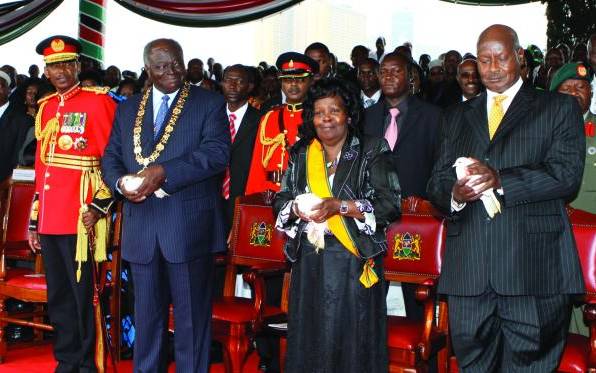×
The Standard e-Paper
Fearless, Trusted News

Former President Mwai Kibaki, the late former First Lady Lucy Kibaki, and Ugandan President Yoweri Museveni release doves to mark the ushering of the new Constitution shortly after it was promulgated in 2010 at Uhuru Park, Nairobi. [File, Standard]
Reforms. There is no word yet invented that gets Kenyans all giddy and excitable like that one whenever it is mentioned in relation to a public institution, an arm of governance or a utility sector.